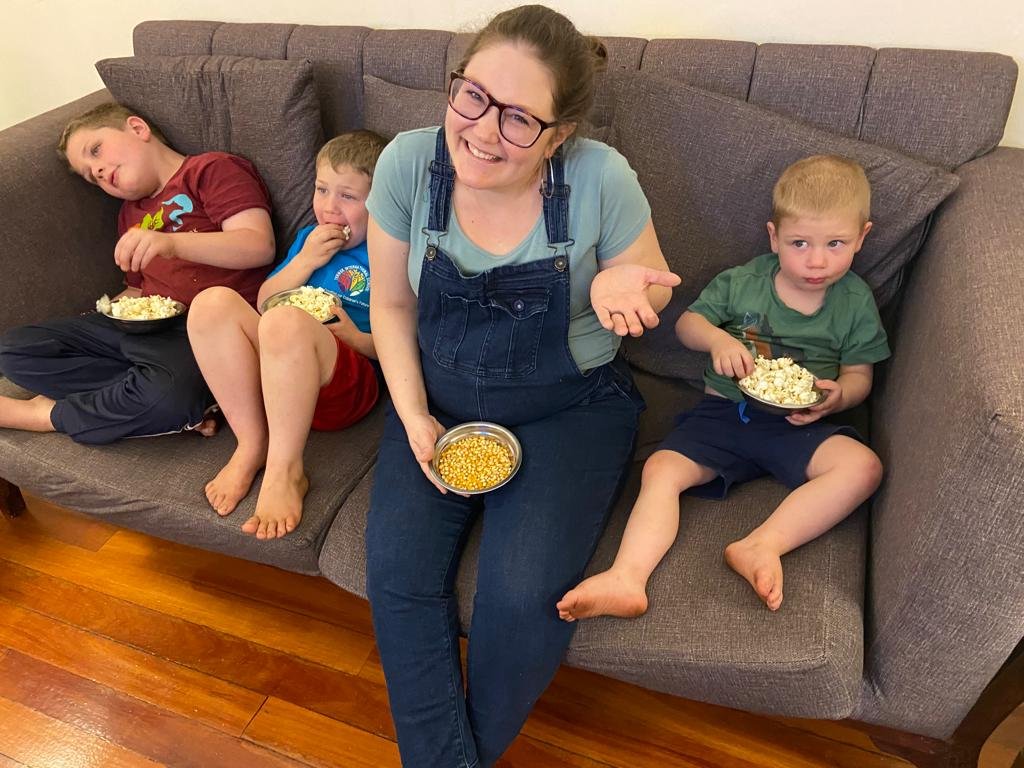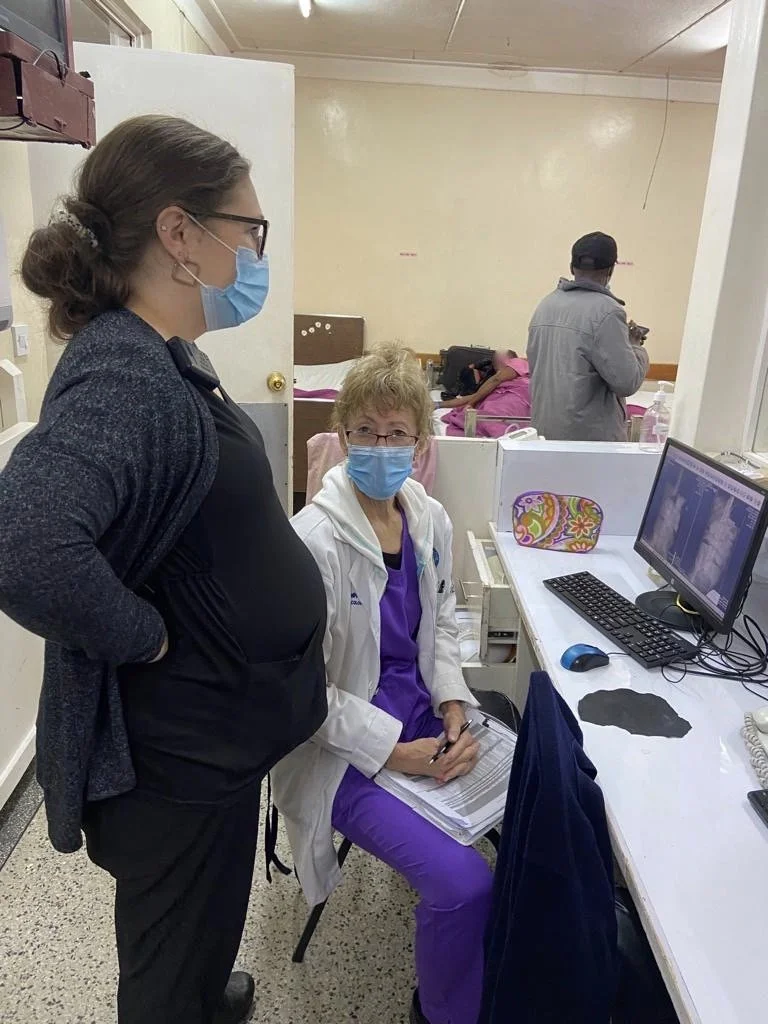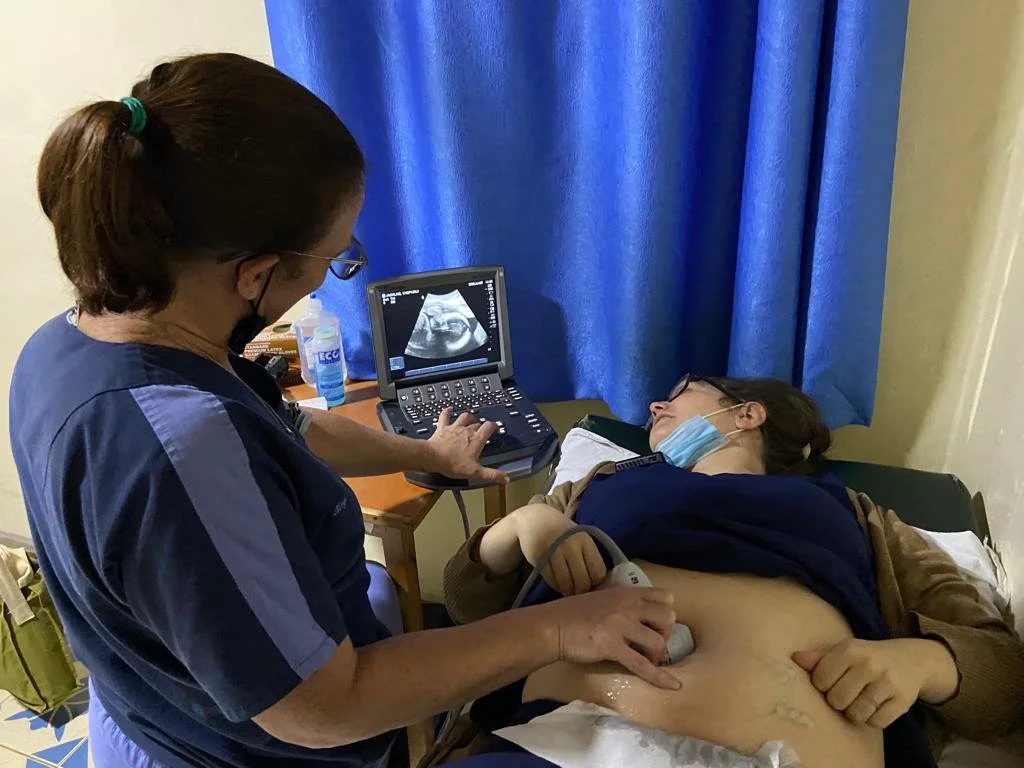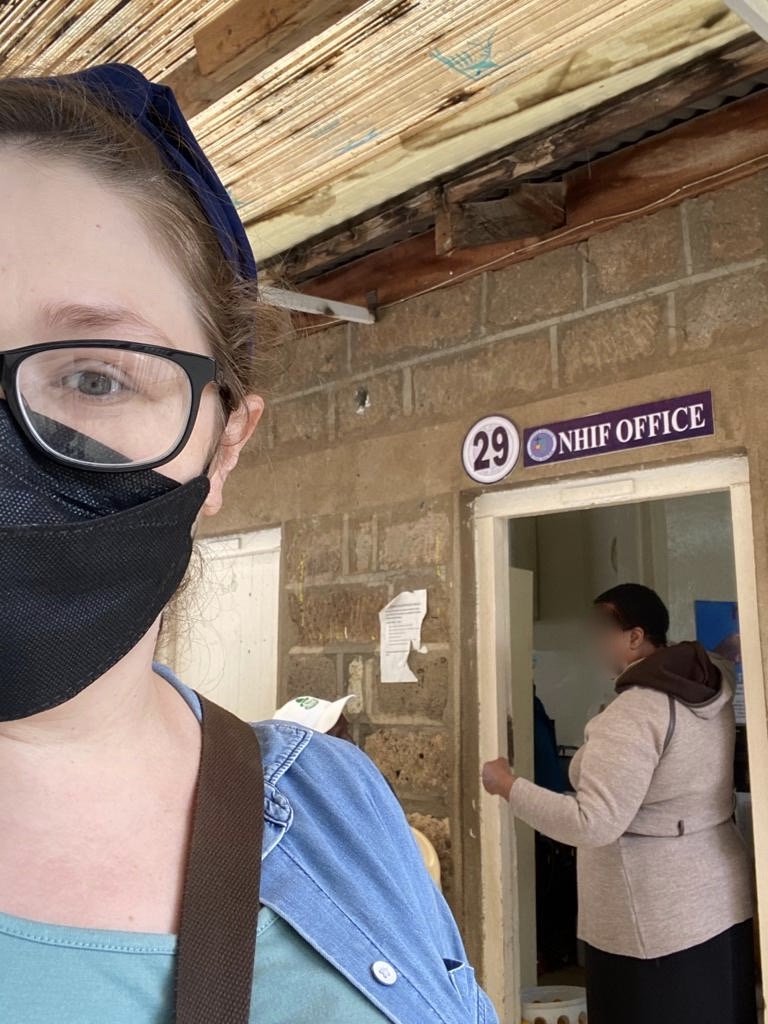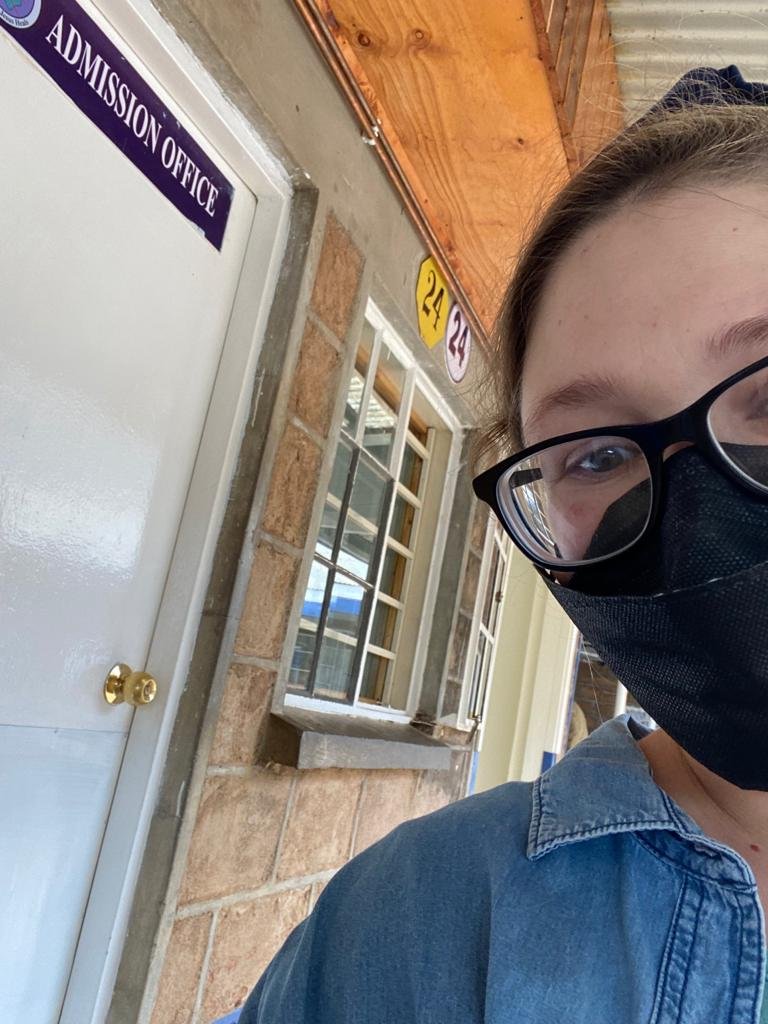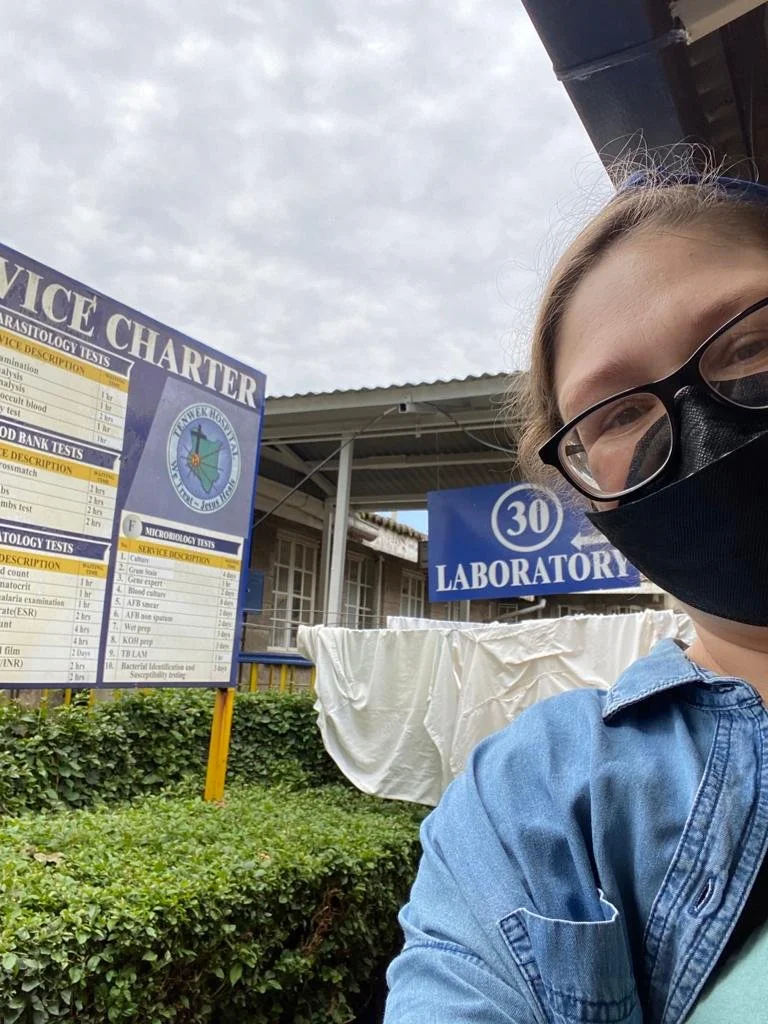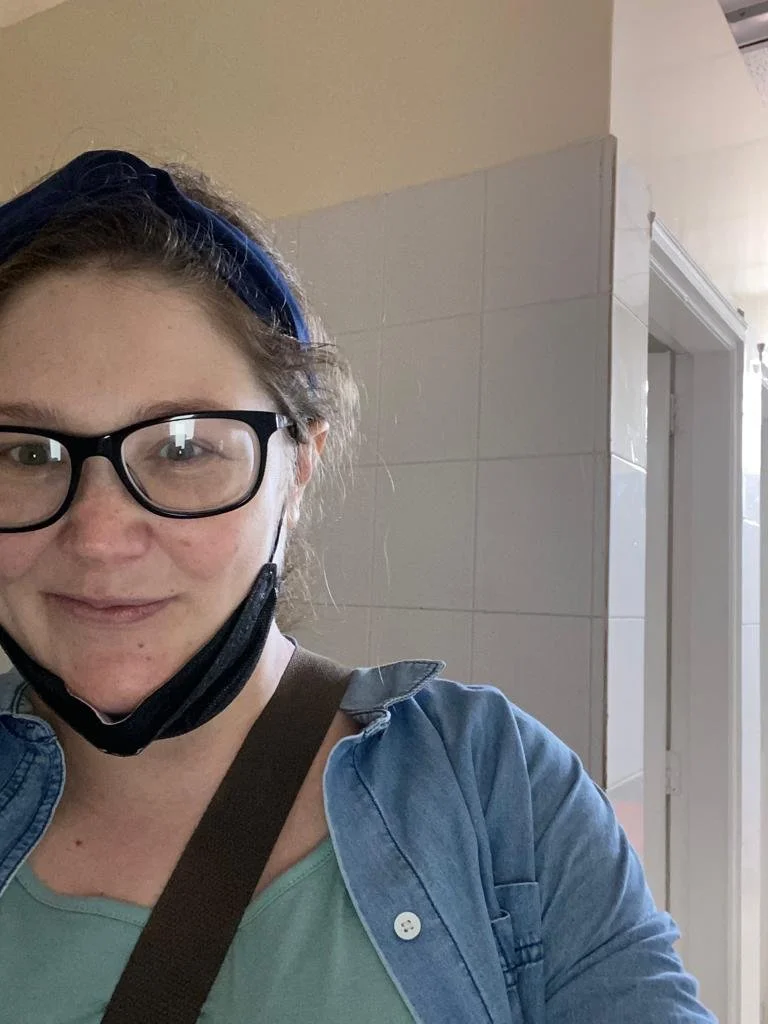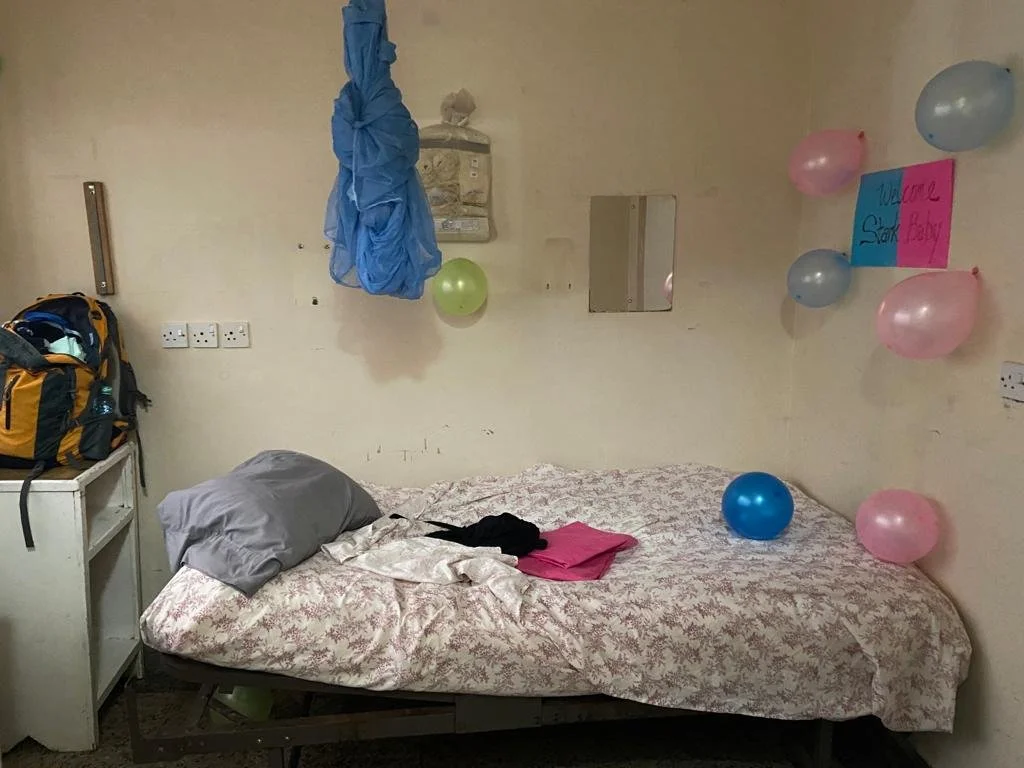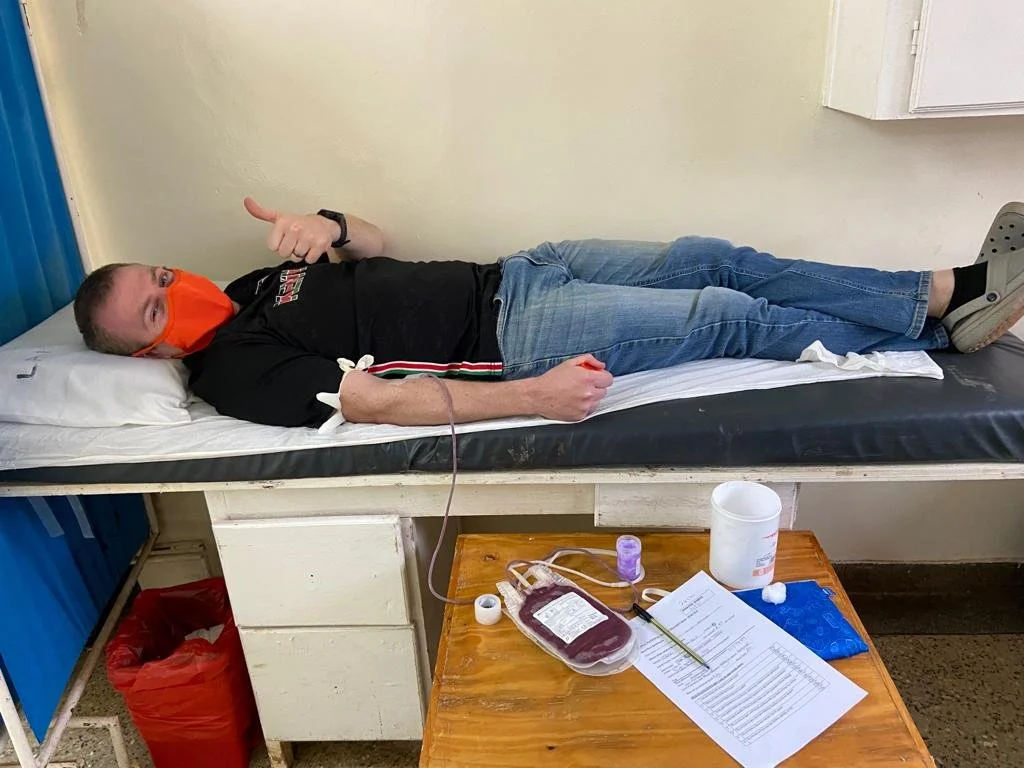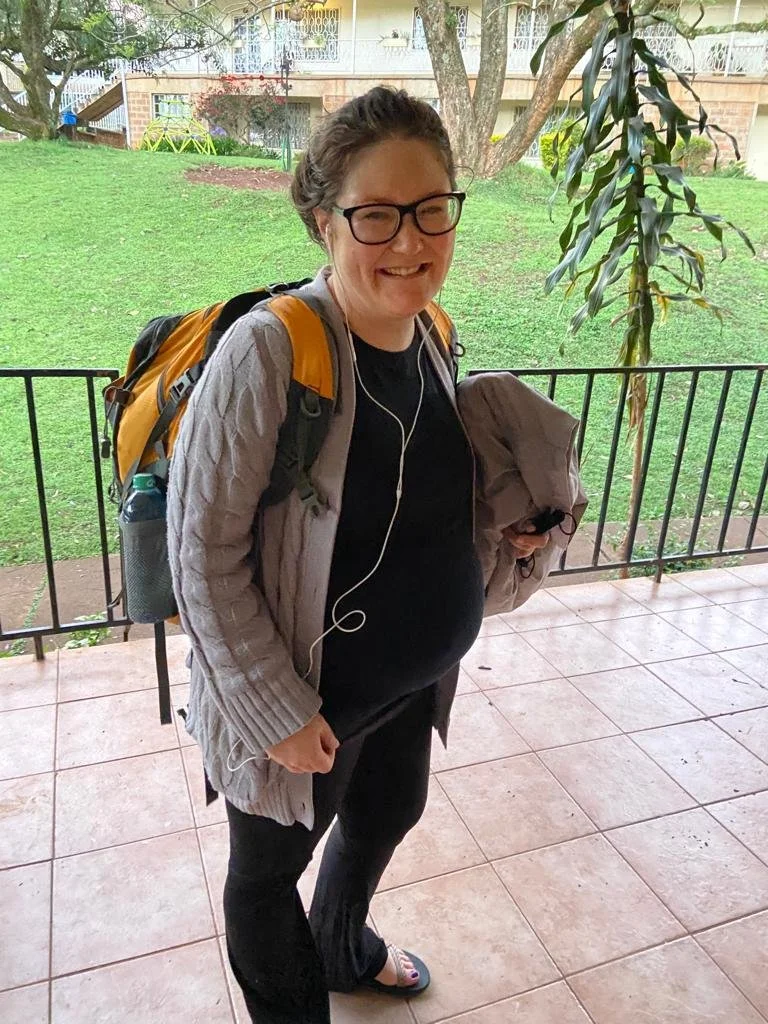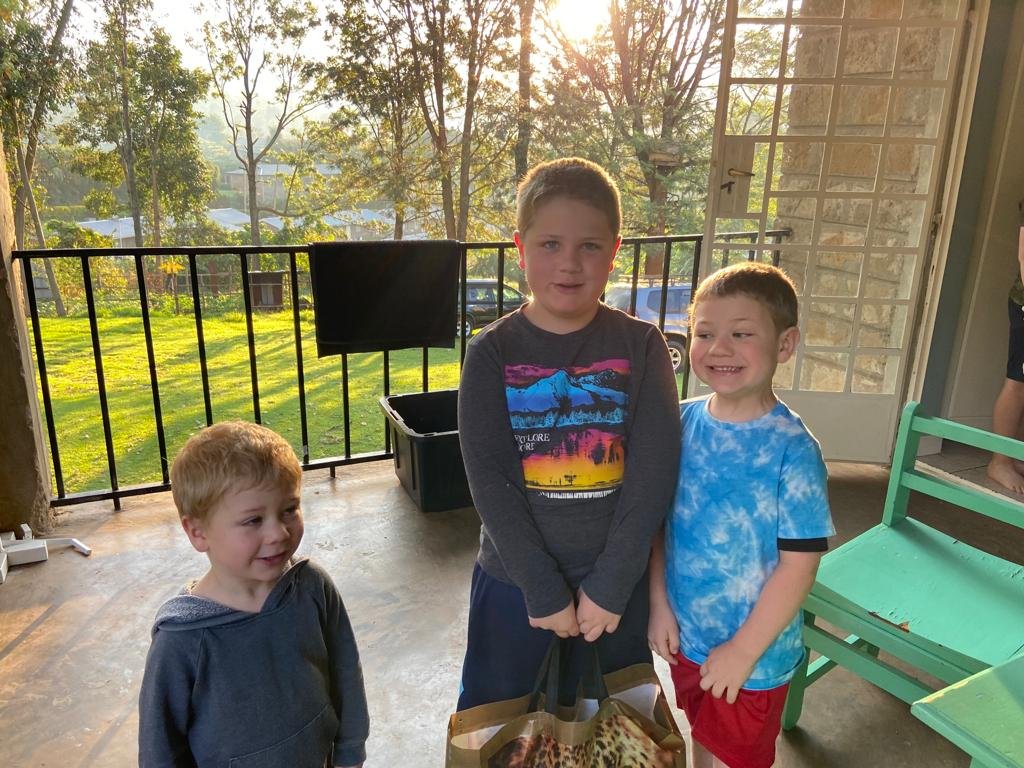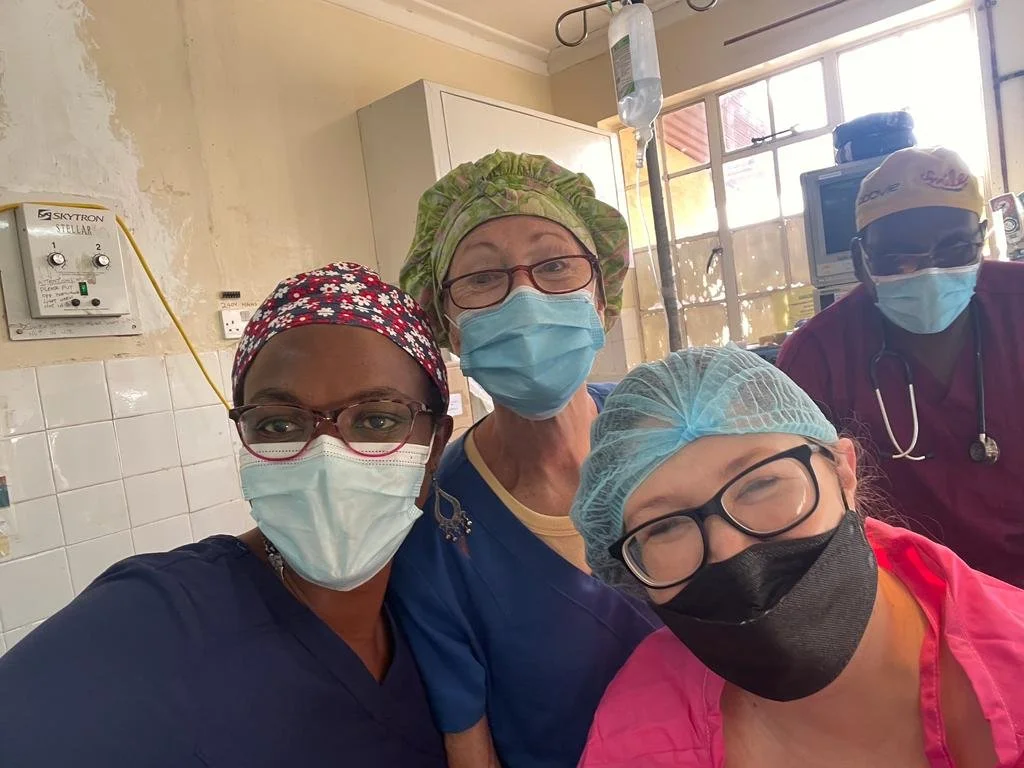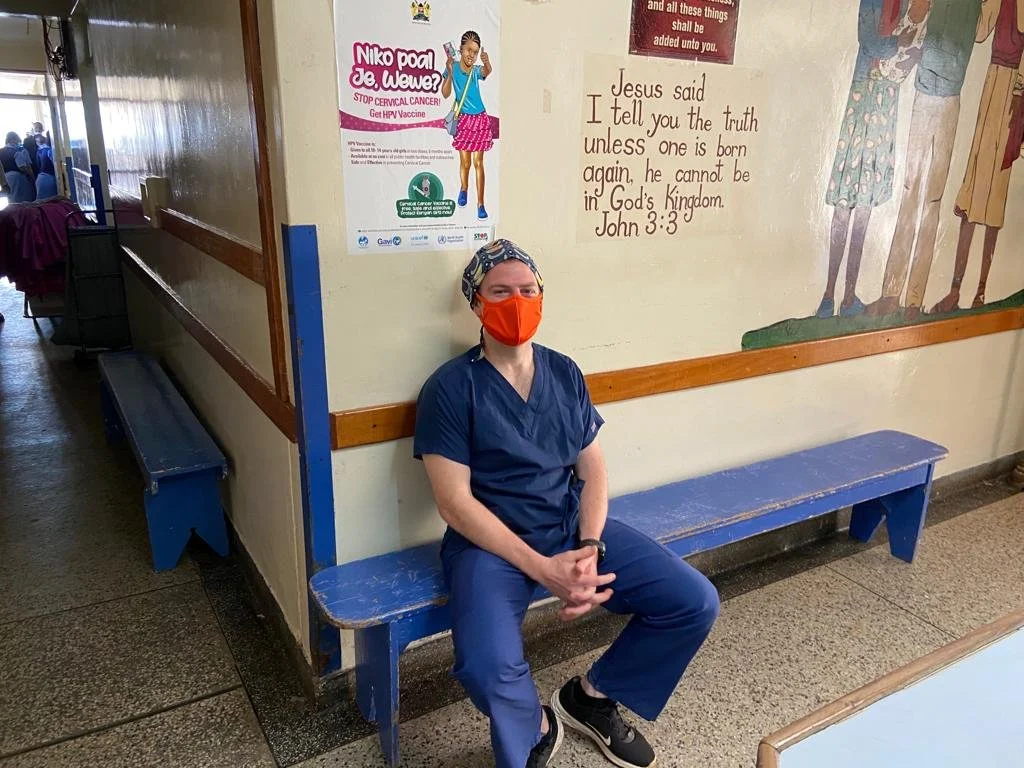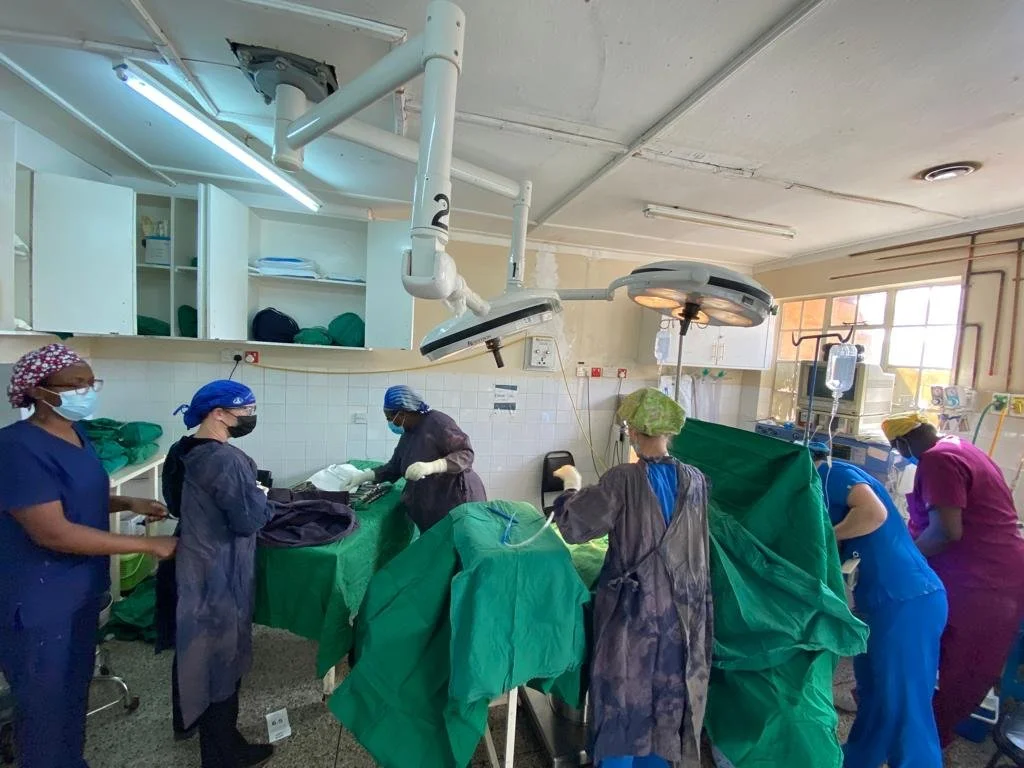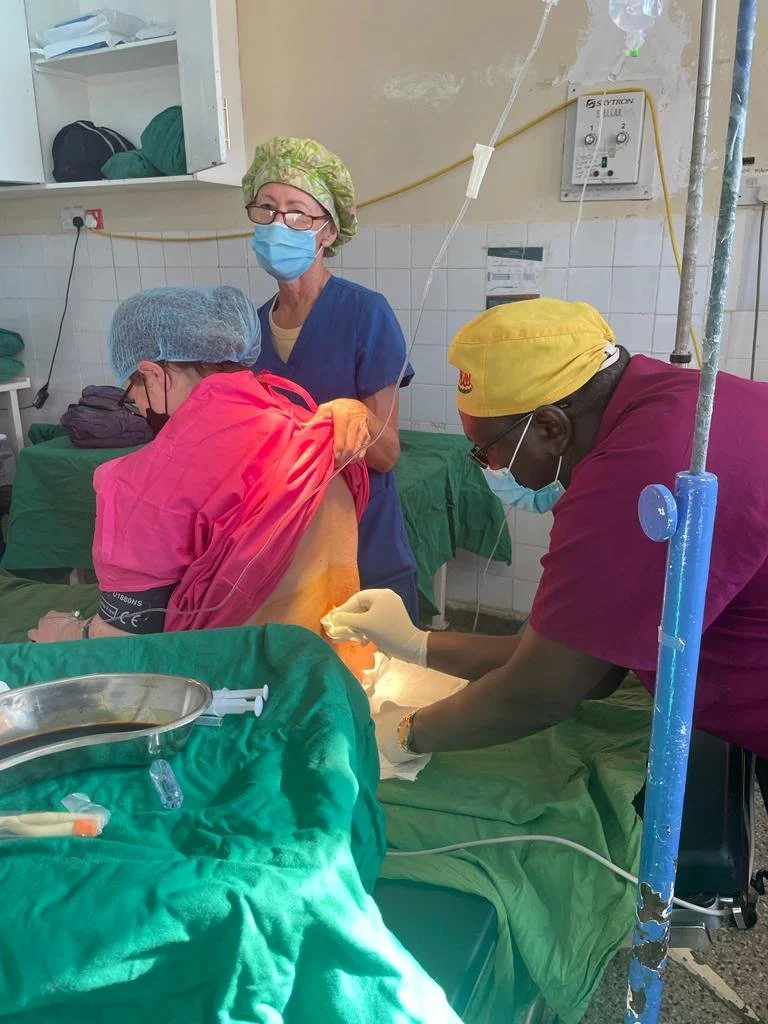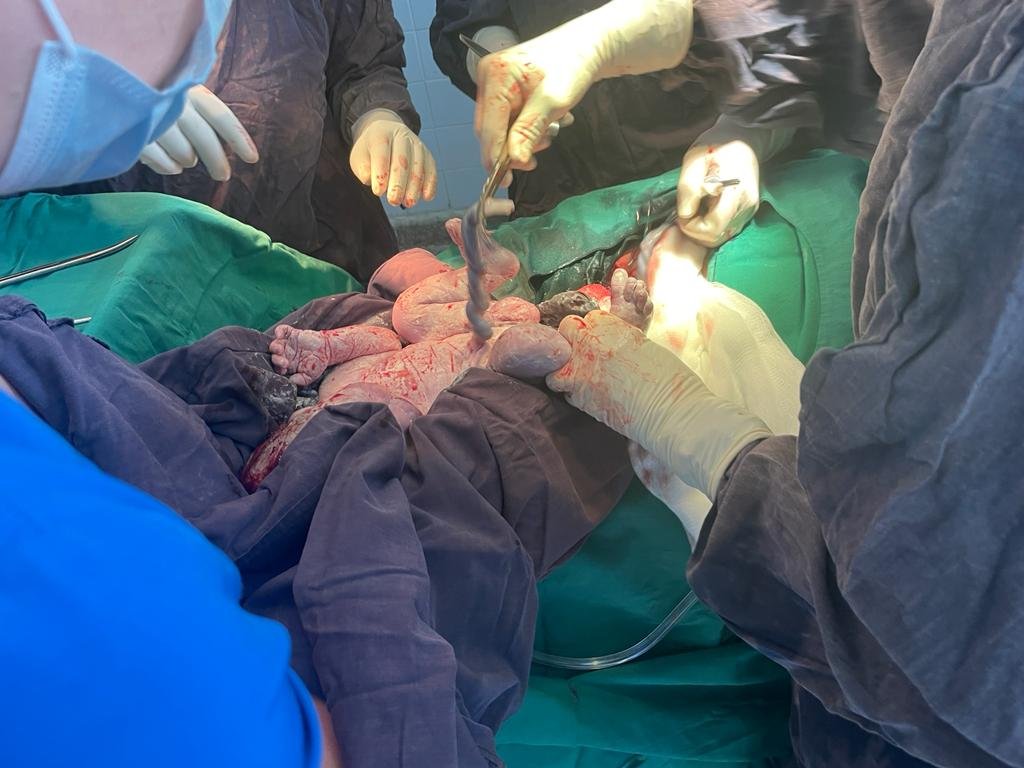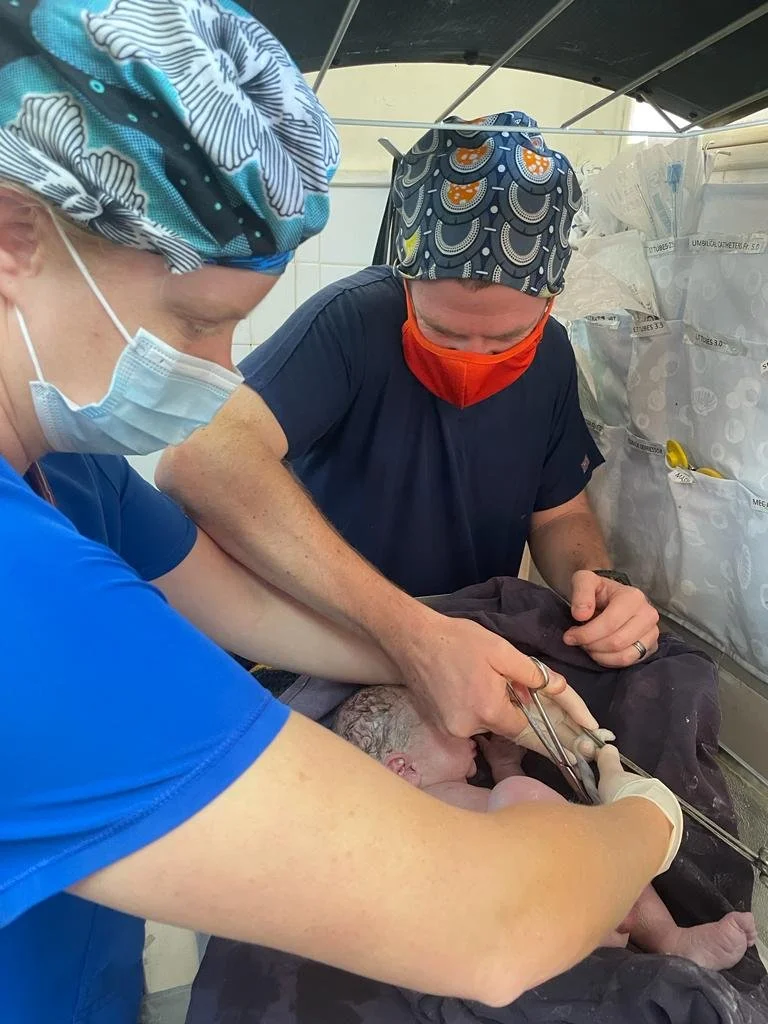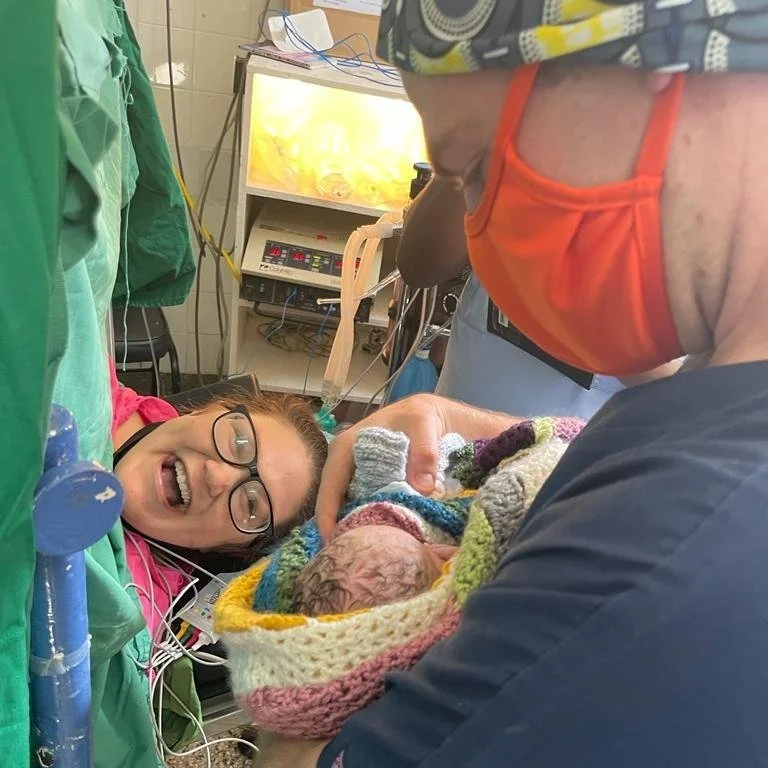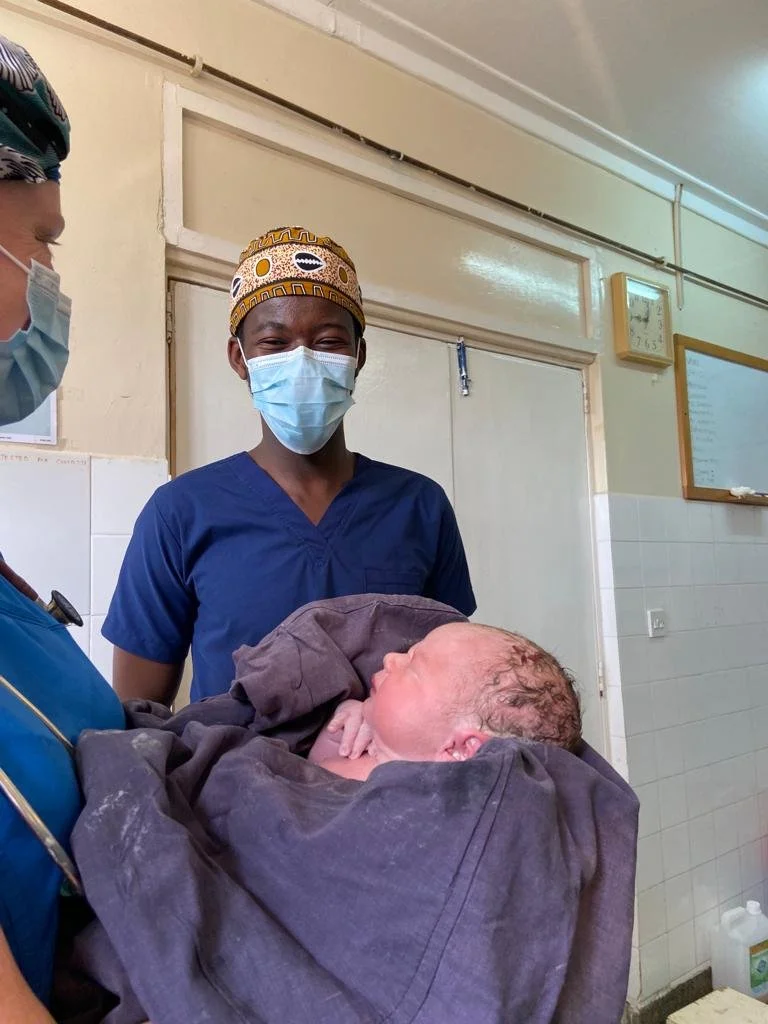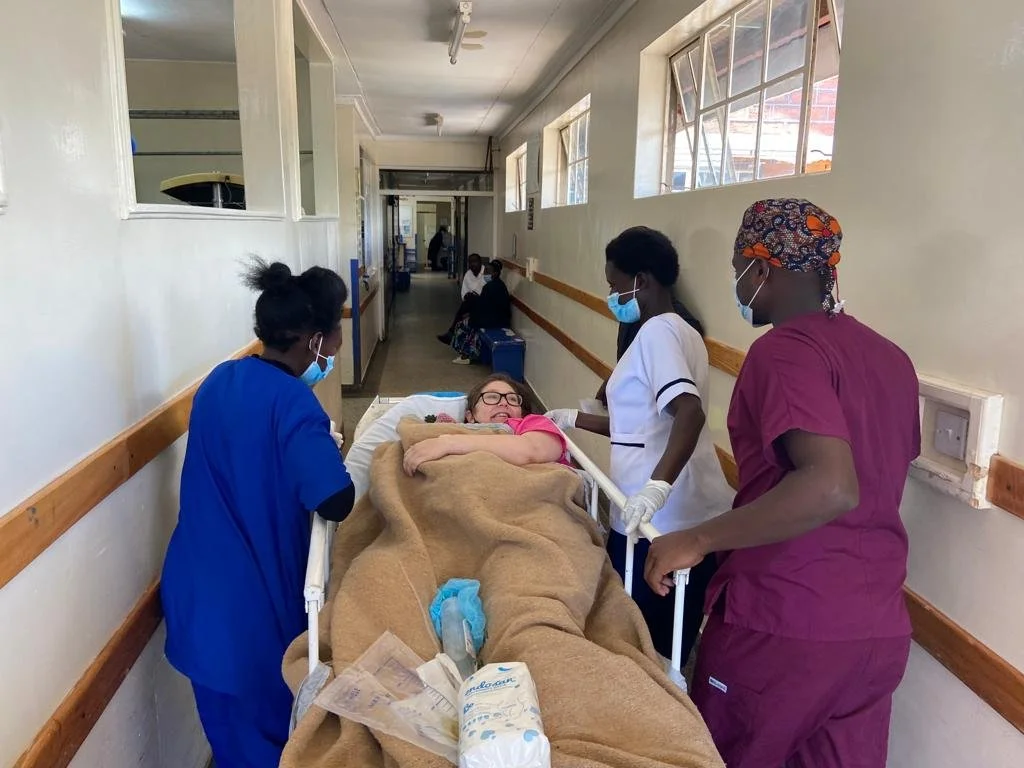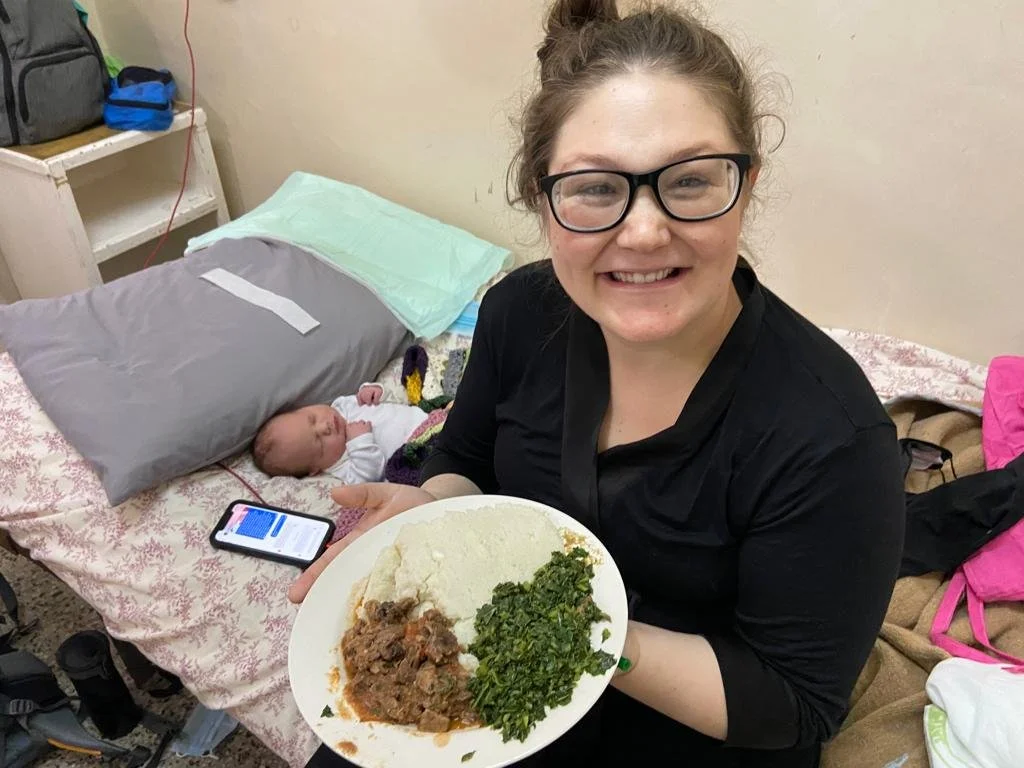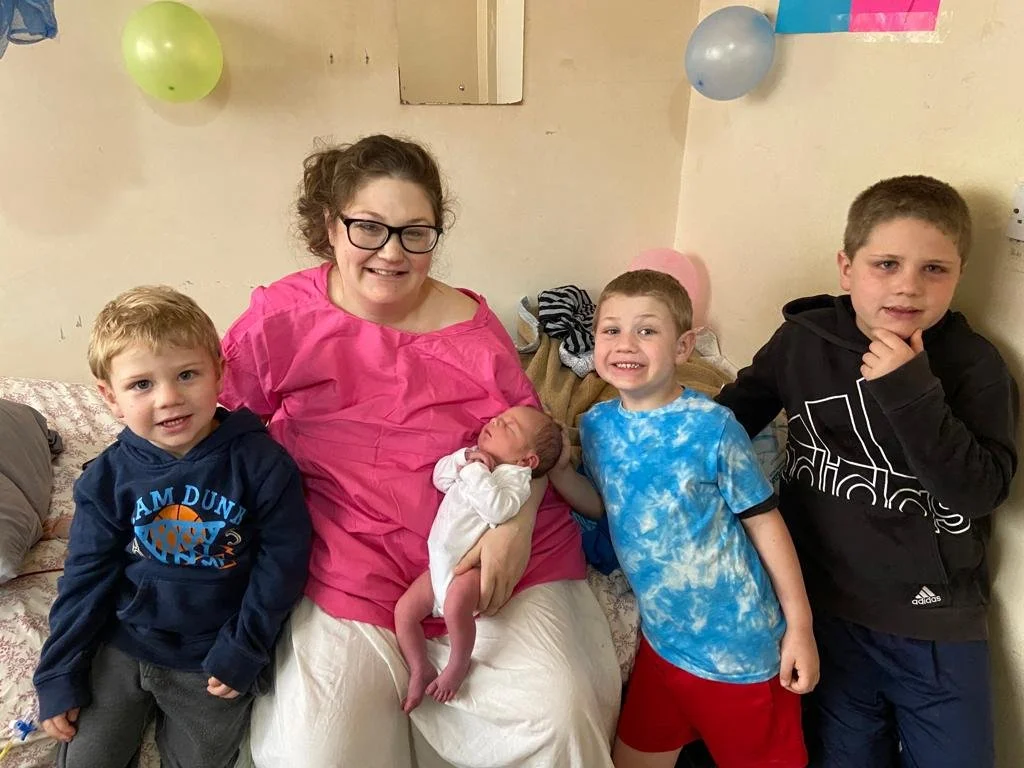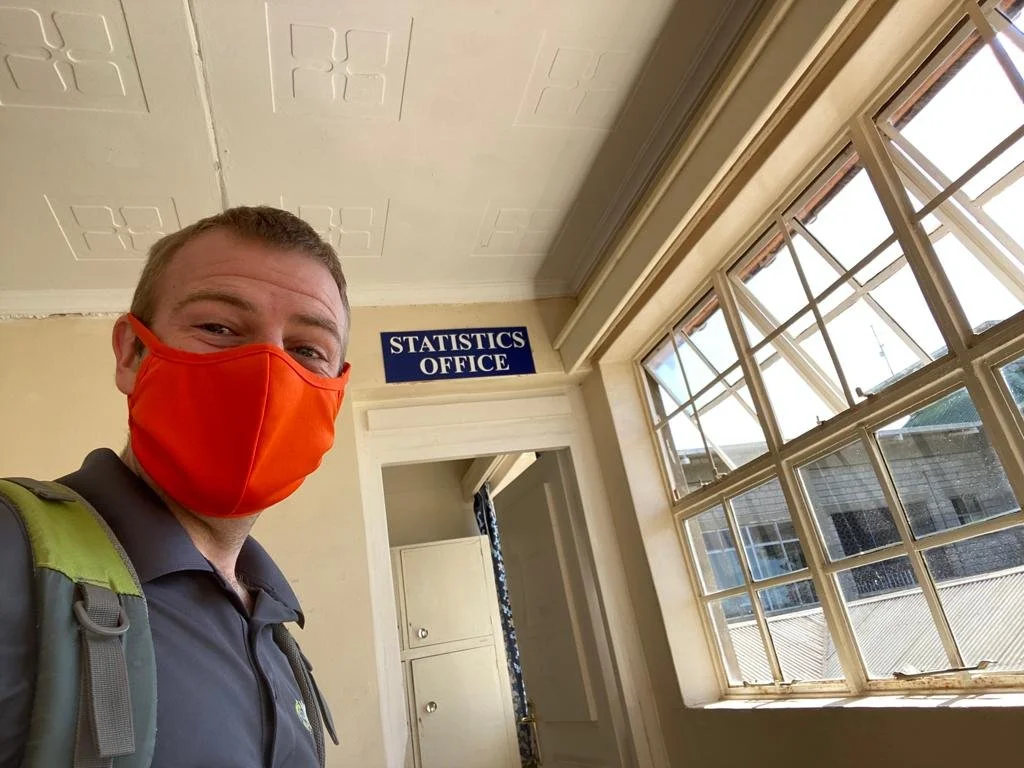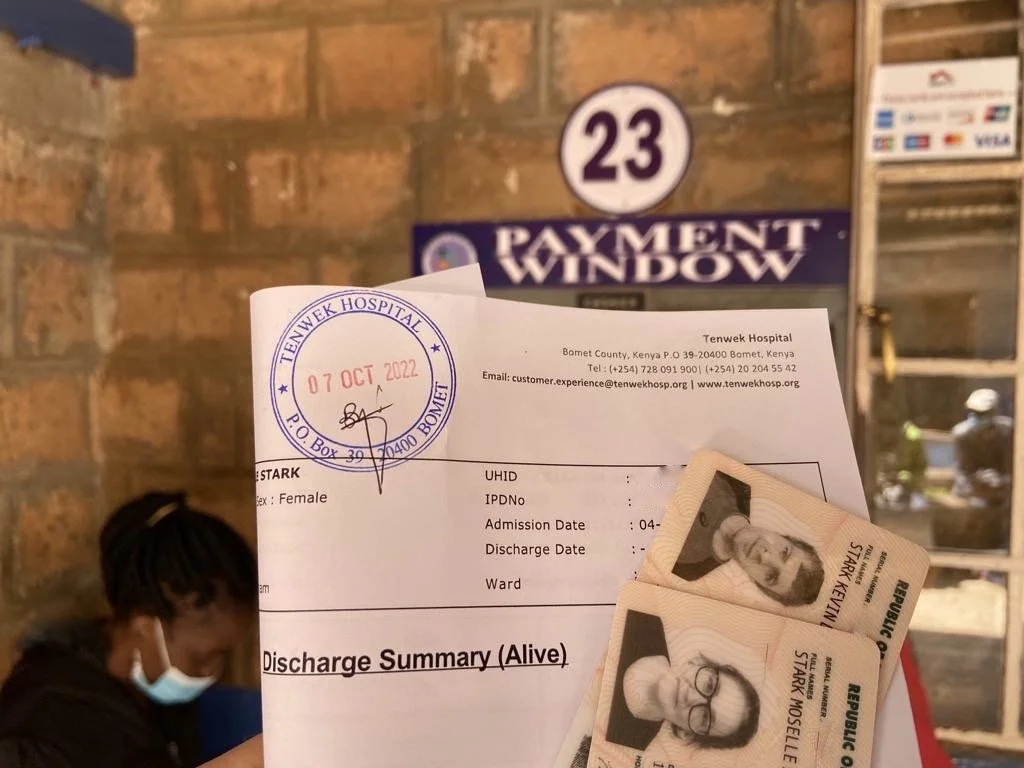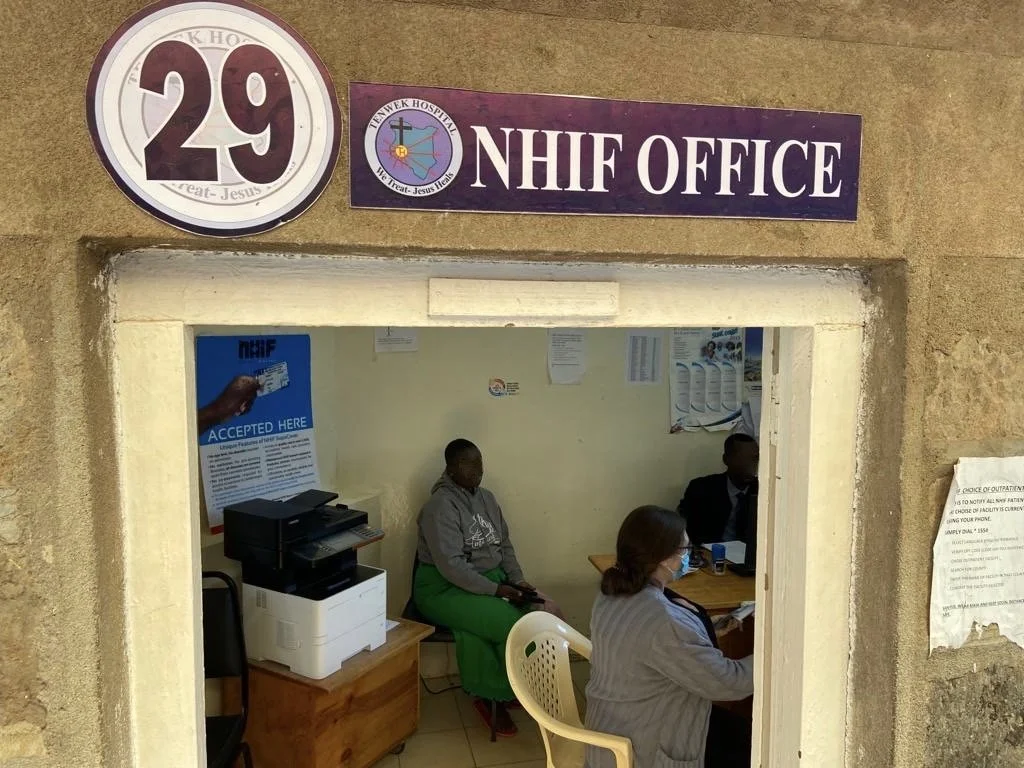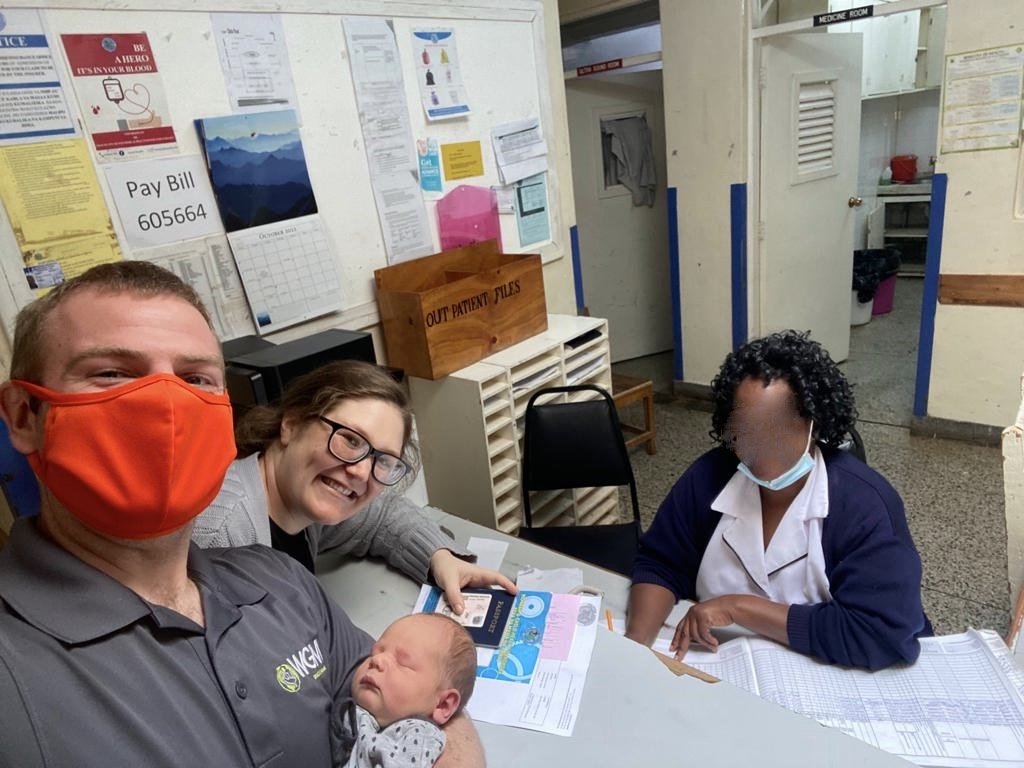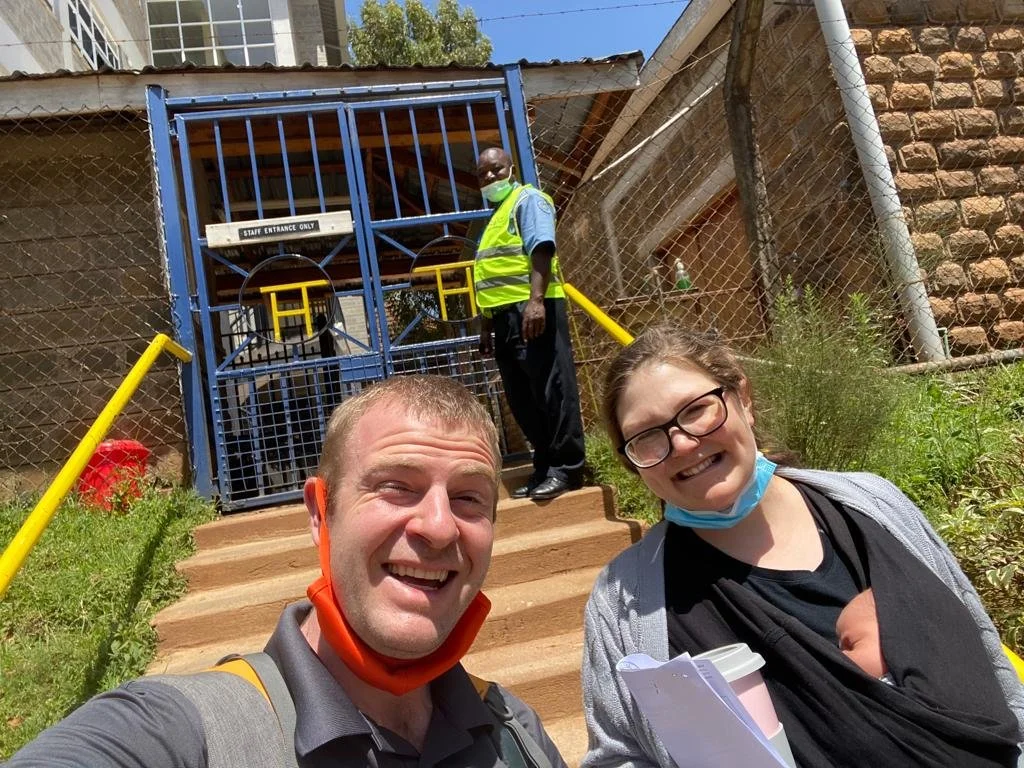We had a baby at a Kenyan mission hospital
Our Ezra was born in October of 2022 in the same Maternity ward that I have worked for the past 2 years at Tenwek Hospital, in the green rolling hills of Bomet, Kenya. This was the first time I had ever stepped out of the role of “daktari” to become a patient at Tenwek. Kevin asked me to recall the event here on the blog to showcase the Tenwek Maternity process. I am writing this in the only way I know how to write these days, through dictation software.
*Note: we took many photos of the process, and blurred the faces of any unmasked people who did not give written consent to be shown online.
Our obligatory social media pregnancy announcement pun: “Guess who’s about to pop?”
my history
In case you don’t know, in my pregnancy prior to Ezra, while we were still in the US, I had a placenta that was very low but not over the cervix. We attempted a vaginal delivery for Shepherd, our 3rd born, knowing that there would be risks. I started bleeding heavily during labor since the placenta was starting to separate from the wall, so plans changed to an emergency c-section. I was blessed to be in a wonderful medical facility with amazing doctors and staff, and I had a safe delivery.
Practicing while pregnant
So I think that we caused some mild panic among some of my OB/GYN peers when we got pregnant again overseas. We had full confidence in the team and facilities at Tenwek, and knew that God had us where He wanted us for this pregnancy. For Ezra, I was strongly leaning towards trying for a vaginal delivery after c-section, but my placenta was again low. This time it was so low that it was covering my cervix. This makes a vaginal delivery impossible. This is a pretty high-risk pregnancy, because if I were to go into labor early or my cervix would start to dilate, there could a considerable bleeding very quickly, which could endanger the baby as well as myself. We saw the Lord’s provision in the fact that I made it to term without any complications and I was able to work in the hospital during the pregnancy with no issues.
Early ultrasound during the pregnancy
the Day before delivery
So at our facility in Tenwek, our scheduled C-sections are admitted the day before their delivery. There are a few reasons for this, but the main one is that travel can be very unpredictable. Almost all our patients rely on public transportation and traveling in the dark can be very hazardous, so this ensures that they are there on time for an early start in the morning. I live a 5 minute walk from the hospital, but I went ahead and checked in the day before to smooth the process.
Let’s walk through the process of admission the night before the C-section:
Step 1. Check in at clinic.
We have all our scheduled patients go to clinic, this allows for them to have a full review before admission. The nurses double check all their information and check vitals, baby’s heart rate, etc. They then call the on-call intern for admission. The intern comes and does the admission history, and then tells the patient to go change to inpatient.
Step 2. Change to inpatient.
If you have been admitted in a US hospital, you have these registration people who come to your room typically with a rolling computer, but at Tenwek, it is an office that you need to visit. Why is this step important? This is an important for documentation and billing. it creates another encounter in the medical record, and we place all the information, tests, operations, and discharge all in that account. The record/encounter is then sent to insurance to hopefully be paid.
If you come into the hospital in labor or in an emergency situation, a relative can go to the office and get you admitted.
Step 3. Stop by the NHIF (National Hospital Insurance Fund) Office or Bill Pay
So in Kenya, there is a National Insurance that is available, but it does require that you make regular payments. The majority of Kenyans who have insurance use NHIF. By US standards, it may seem very affordable, but for a lot of our patients, it is very difficult to afford. There are other private insurances that may be available through an individual’s work. We are also able to obtain the National Insurance by living in Kenya, which for us was a huge blessing. Our entire C-section and hospital bill was covered. We had to stop at the office and they submitted my admission to the insurance agency to make sure it was active and that they would cover. I got a text message confirming my admission.
What if you don't have insurance? At Tenwek, there is an upfront cost to getting admitted. If a patient and their family cannot afford the admission, we have emergency forms that we can fill to bypass the upfront cost.
Step 4. Go to Bathroom
Any pregnant lady understands why this was…
My private room, decorated by friends
Step 5a. Go to the lab.
So when you are seen for admissions, often the intern we'll tell you to stop by the lab. We can do blood draws on the floor but they tend to be at scheduled times and patients can often be missed. Especially if someone is having surgery or a delivery, it is important for us to get their lab work to best prepare for their procedure or delivery.
Step 5b. Get your relatives to donate blood
So we do have a blood bank, but often times, we are running low on blood. We ask people to bring relatives to donate if they are having a planned procedure, so we can keep blood in stock. Patient’s relatives are most likely to have the same blood type. Are pregnant population tends to be quite anemic so we try to have most of our C sections with one unit on standby for them. Shout out to Kevin and Val Sleeth for donating on my behalf!
Step 6. You’re Admitted!
So now have officially been admitted. Patients will then go to maternity, they will get an NST in the delivery area, and then be directed to which bed they are admitted to/ will spend the night.
Kevin donating blood the day before.
So because I live 5 minutes from the hospital, and I happen to have the inside track in maternity. I actually went home for the night do you sleep in my own bed. I did make myself NPO at midnight.
A funny thing that happens in Tenwek, is that you have to be very specific with patients about nothing to eat or drink after midnight when planning for procedures. There is a porridge called ugi which is like a hot very thin oatmeal drink that often has lot of sugar. And around 4:00 AM in the maternity ward, they come around and serve it to all the patients. Now if you've been a nursing mother or a pregnant woman, you can understand how a 4 AM hot sugared snack is absolutely amazing. I 100% recommend it. 10/10. But you don't really eat it and you don't really drink, it is somewhere in the middle. So some patients think that is an exception to the NPO rule. Overall, I find it very amusing, but it can really mess with your surgical scheduling.
Delivery day
Leaving for the hospital on C-section day!
So I woke up and headed to the hospital at 6:00 AM with my bags. Everyone's hospital bags seem to be backpacks here so I went with the trend and packing some backpacks. I went straight to maternity to get my IV placed. While I was getting my IV placed, There was a patient whose baby was in distress on the monitor despite multiple interventions being attempted by the midwives. I talked to the patient and recommended a C-section after the midwives said that the baby had been distressed multiple times with little progress. Patient agreed, and I let the on call intern know.
Kids dropped off with some extremely helpful friends for the day.
I got my fluids and signed my consent. we have one dedicated OB theater which is where I was taken to. Everybody was prepped and ready to go. Both of my partners scrubbed my C-section, because number one it is super fun to deliver a friend and number two with my previa, I was at a very high risk of bleeding. Especially with having one additional C-section, it can get a little complicated. Everything went very smoothly with my spinal and my delivery. All the complications that they were prepared for did not happen.
Some of the crew before the procedure. We were excited!
Kevin waiting on the bench designated for men/dads.
I was again absolutely correct about the gender of the baby. I felt very confident that this was going to be our 4th boy. He came out screaming which was so reassuring. Praise God for a healthy baby! Kevin was able to go with him to the resuscitation and then bring him back into the OR, and we were able to do skin to skin.
Meeting Ezra for the first time
Other friends from Maternity meeting Ezra
post-op
I was wheeled to recovery area, which is interesting because you recover with people from all different surgeries. My recovery was very uncomplicated and I was able need to be moved to the floor relatively quickly.
Headed from post op recovery room to our private room.
The majority of maternity ward is an open ward, but we do have a few private rooms. I did have a private room, and initially I felt strange about having such a privilege. However, after the amount of stares I received even in the private room, I was grateful to have some space. It was a lot of fun because in Kenyan culture surrounding Tenwek, people have no inhibition about poking their heads in to visit. So I got to see everybody from cleaners to nurses to interns. My favorite group that came to visit was bunch of the NICU moms. They heard that I had delivered, and I had taken care of many of them either during their delivery or their inpatient stay. So a large group of them stopped by mostly just to see a white baby. Everyone preferred to call him Kipchirchir since that was his Kenyan name.
Some tasty hospital food! Ugali, Sukuma wiki and beef stew.
My inpatient stay was pretty straight-forward. I think the most unique thing is that uncomplicated babies are actually not admitted to the hospital. I was admitted for post-op recovery and Ezra was simply along for the ride. Newborns do get an account but it tends to only be designated as outpatient. On the day of mom’s discharge, the babies are given a brief exam and their vaccinations. The vaccinations are polio and the BCG vaccine (for tuberculosis). We went ahead with BCG even though it is not common in the US, since he would spend the majority of his under-2-year-old life in Kenya. As a result, Ezra has a little scar on his left arm.
First time for the boys to meet Ezra
Discharge and onward
We were able to be discharged on post-Op day 2. We filled out all our paperwork to get our birth certificate. You do a lot of the same steps to get discharged as it is to get admitted. You get your discharge paperwork which you then take to billing and then to the NHIF office to make sure your hospitalization will be covered. After that, it was a quick walk down the hill.
Discharge time!
Walking downhill to home.
We had an expedited appointment with the US embassy to process Ezra’s travel documents approaching quickly after the birth. So Kevin had to go direct to the county government to get Ezra’s birth certificate ASAP.
Kevin getting birth certificate from the county government.
So this was our experience. It doesn't fully encapsulate how it's like to deliver in a Kenyan hospital or even at Tenwek Hospital, but we hope it gives you a flavor of what our patients typically go through. We were so grateful for the Lord's provision throughout this pregnancy, and the tremendously helpful hospital staff we encountered along the way. We are glad that Ezra was born in Kenya, and we are proud of the great work being done by my colleagues at Tenwek Hospital’s Maternity Ward.
If you have any other questions about the process, please reach out to us! We would love to share more about it.

